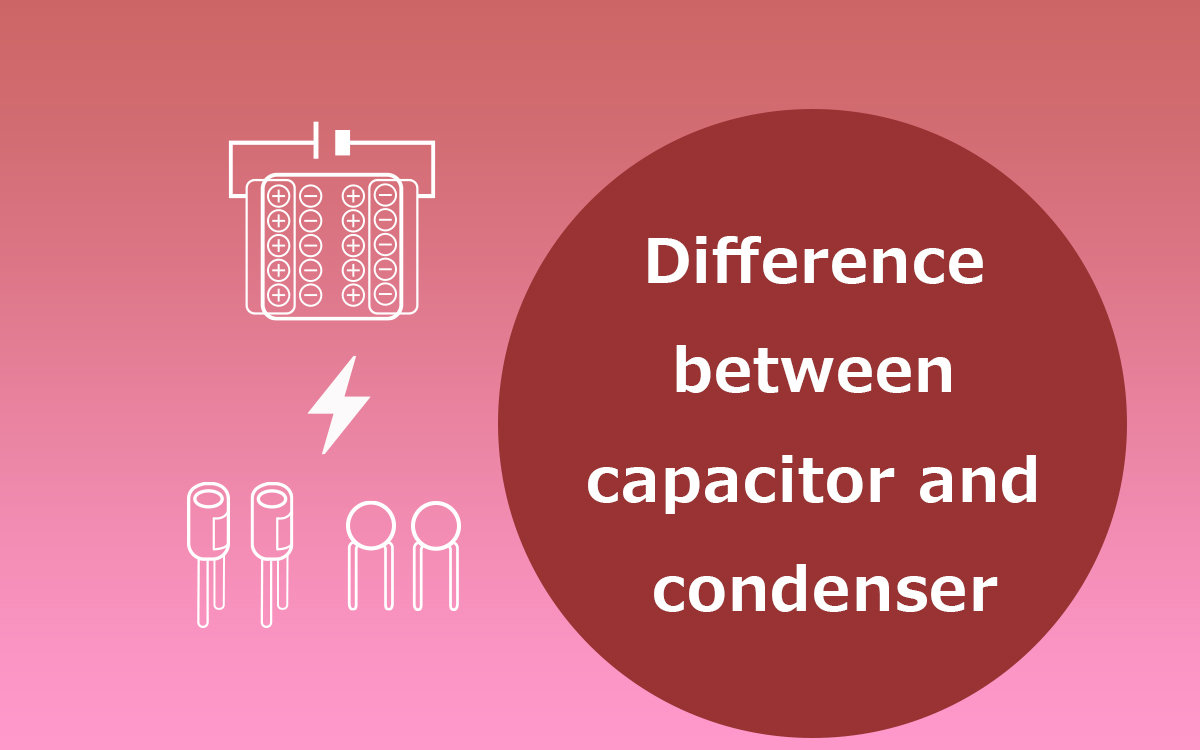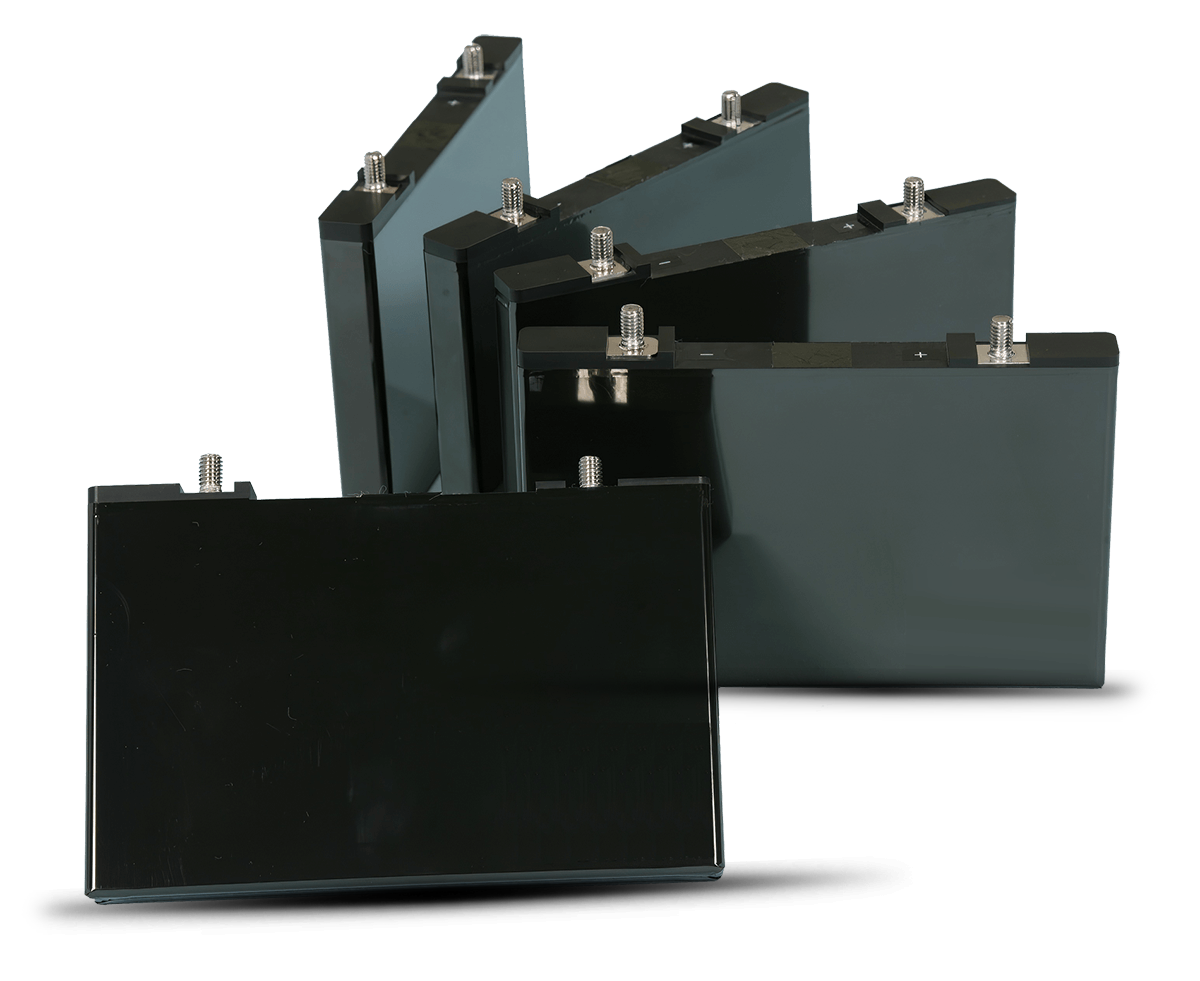What is the difference between a capacitor and a condenser?

The terms "capacitor" and "condenser" are often used for the types of batteries and power storage devices, but many people may not understand the differences.
This time, we will explain the difference between capacitors and condensers, their original meaning, and their types.
Difference between capacitors and condensers
In English, “capacitor” is used for both capacitor and condenser; they were originally used with the same meaning.
However, recently, large-capacity capacitors such as electric double-layer capacitors (EDLC) that utilize electric double-layer capacity and hybrid-type lithium-ion capacitors (LIC) that are hybrids of EDLC and lithium-ion secondary batteries tend to be called “capacitors.” There is a tendency to distinguish it from small-capacity capacitors such as multilayer ceramic condensers and aluminum electrolytic condensers.
A “condenser” often refers to a small electronic component that stores and discharges electricity, often used in electronic circuits and power supply circuits, even if it has the same function as a capacitor. Mainly, when it is used in an electronic circuit, the capacitance is stored. It is very small and may use units such as μF (microfarad), pF (picofarad), etc. (see this blog post for units used in capacitors, etc.).
What is a capacitor?
So, what is a capacitor anyway ?
A capacitor is a power storage device that can store and discharge electricity and is often translated as a power storage device in Japanese.
When you think of a power storage device, you may think of so-called alkaline and lithium-ion batteries, but there is one big difference between the two.
It is whether a chemical reaction occurs when storing electricity.
Difference between battery and capacitor
In a battery, when electricity is stored or released, a chemical reaction occurs, and the original substance changes to another substance.
On the other hand, in a capacitor, electricity is stored on the surface of the electrode by the force of static electricity, and no chemical reaction is used, so there is no change in the substance.
Since electricity is stored and discharged only on the surface of the electrode, the amount of electricity that can be stored is limited compared to batteries. However, it has the advantage of being resistant to deterioration.
Capacitors and batteries are used properly in fields where these features can be utilized.
Types of large-capacity capacitors
There are several types of capacitors.
Here, we will explain large-capacity capacitors, which are explained in the above section in terms of differences from condensers.
The method of classifying capacitors differs depending on the purpose, but an example is shown below. Capacitors can be broadly divided into symmetric and asymmetric types.
EDLC
A typical symmetric capacitor is an electric double layer capacitor (EDLC), which uses activated carbon for both the positive and negative electrodes. It was commercialized in the latter half of the 1970s and has a long history, and it is a capacitor that is widely used globally due to its ease of use, such as being completely discharged and usable.
Various types of asymmetric capacitors have been proposed for the purpose of improving the capacitance of EDLC, such as by using activated carbon for one electrode and using a chemical reaction for the other electrode. Many of them cannot be completely discharged, so they are distinguished from symmetric capacitors by the United Nations transportation regulations due to differences in handling.
Hybrid SuperCapacitors (HSCs)
A typical asymmetric capacitor is a Hybrid SuperCapacitor (HSC).
This is a hybrid capacitor that uses EDLC for the positive electrode reaction and the lithium-ion battery (LIB) reaction for the negative electrode reaction. This makes it a device that combines the features of EDLC with high-speed charge/discharge, long-term reliability, and safety with the features of lithium-ion batteries' high capacity and is expected to be widely used in the future.

Hybrid supercapacitor (PRISMATIC CELLS) by Musashi Energy Solutions
Summary of differences between capacitors and condensers
How was that? In this article, we have introduced the differences between capacitors and condensers, especially large-capacity capacitors.
Musashi Energy Solutions (MES) is developing and manufacturing the Hybrid SuperCapacitors mentioned in this blog today. If you are interested in or have any questions about Hybrid SuperCapacitors, please contact us using the inquiry form.
* Please understand that the description in this blog includes interpretations based on the author's experience and subjective opinions. In addition, the technical information contained in this blog does not grant any guarantee or license to the intellectual property rights or other rights of the Company or a third party.
